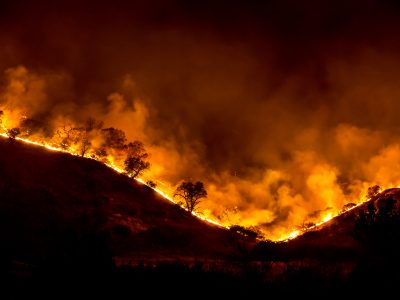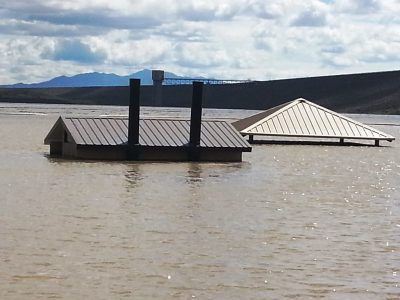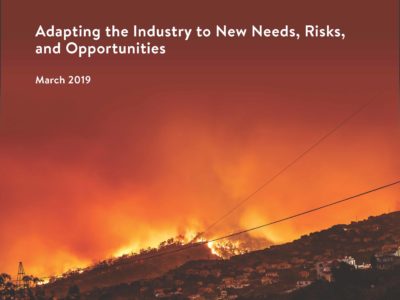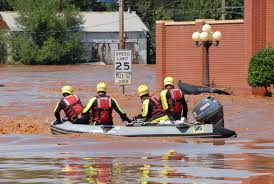insurance
How Does Increasing Wildfire Risk Affect Insurance in California?
Affordability and Availability of Wildfire Insurance Are Less Stable Under Changing Conditions
(This post is part of a series on the issue of climate change and insurance that my colleague Ted Lamm and I are writing, inspired by a symposium that the law schools co-organized with the California Department of Insurance earlier this year. You can find more information on the symposium here. Ted’s prior related post …
Continue reading “How Does Increasing Wildfire Risk Affect Insurance in California?”
CONTINUE READINGClimate Change and the Insurance Sector: An Overview
The Insurance Industry Grapples With Changing Risks in a Changing Climate
(This post is part of a series on the issue of climate change and insurance that my colleague Ted Lamm and I are writing, inspired by a symposium that the law schools co-organized with the California Department of Insurance earlier this year. You can find more information on the symposium here. Ted’s prior related post …
Continue reading “Climate Change and the Insurance Sector: An Overview”
CONTINUE READINGSymposium Brief: Insuring California in a Changing Climate
New CLEE report highlights key climate-related risks and opportunities for insurance industry
Climate change poses risks to California’s economy, residents, infrastructure, cities, and natural resources. The insurance industry, which provides financial protection to governments, individuals, and businesses for risks they face, will play a central role in efforts to the harmful impacts of climate change on California. Yet the industry itself is vulnerable to a number of …
Continue reading “Symposium Brief: Insuring California in a Changing Climate”
CONTINUE READINGFormer California Insurance Commissioner Dave Jones Joins CLEE to Work on Financial Risk from Climate Change
Register for Wednesday 10am webinar to welcome Jones and discuss new CLEE insurance policy brief
Commissioner Dave Jones just concluded two successful terms leading the California Department of Insurance, where he distinguished himself as a pioneer in efforts to address the risks that climate change poses to the insurance sector. The Center for Law, Energy and the Environment (CLEE) is now pleased to welcome him to our team, where he …
CONTINUE READINGWildfires: Managing the Risks
How can we limit the spread of wildfires and save people and property?
Wildfires are already a serious problem, and climate change will only make the problem worse, as I’ve discussed in my two prior posts. Reducing carbon emissions can help keep the problem from growing, but we need to deal with the risks we’re already facing. That is going to require a portfolio of risk management strategies. We …
Continue reading “Wildfires: Managing the Risks”
CONTINUE READINGRisk Subsidies and the Future of Nuclear Power in the U.S.
Should We Take Into Account Government Subsidies that Reduce the Risks Borne by the Nuclear Industry as We Consider Our Energy Future?
As I’ve written about before, U.S. law massively subsidizes the nuclear power industry. In particular, a law called the Price-Anderson Nuclear Industries Indemnity Act dramatically skews the incentives to develop nuclear plants, and to site them in places where there is a lot of risk, because it requires the public to bear much of the …
Continue reading “Risk Subsidies and the Future of Nuclear Power in the U.S.”
CONTINUE READINGSea Level Rises, Premiums Not So Much
Congress apparently just couldn’t resist restoring subsidies for coastal homeowners.
The President has now signed an important modification of the flood insurance program. The changes are hard to understand, in part because the bill changed an earlier 2013 law that itself amended the basic statute. So you have to work through the whole sequence to see what is going on. Before I go into more …
Continue reading “Sea Level Rises, Premiums Not So Much”
CONTINUE READINGClimate change and insurance
I’ve made this point before, but here’s a challenge for “climate skeptics.” The insurance industry is a competitive, profit-oriented industry. They should have little room for believing in the hoax of climate change: After all, if they did, then a smarter competitor wouldn’t bet on climate change and would clean their clock. And yet, in …
Continue reading “Climate change and insurance”
CONTINUE READINGThe Climate Changes for the Insurance Industry
ThinkProgress reports: Following the most damaging year of climate disasters in the United States in history, the insurance regulators in three states – California, Washington, and New York – announced that all major insurance companies operating in their states will be required to assess and publicly disclose the climate-change related risks they face, both in …
Continue reading “The Climate Changes for the Insurance Industry”
CONTINUE READINGThe story of the Price-Anderson Act: how Congress made nuclear power financially viable in the U.S. by eliminating accountability for risk
Ever wonder how nuclear power plants have been able to get financial backing in the U.S. despite the huge, and largely uncertain, potential risks they pose? Or why there are nuclear plants within a few hours’ drive of major population centers such as Los Angeles and New York? Or who will pay the costs that …
CONTINUE READING








